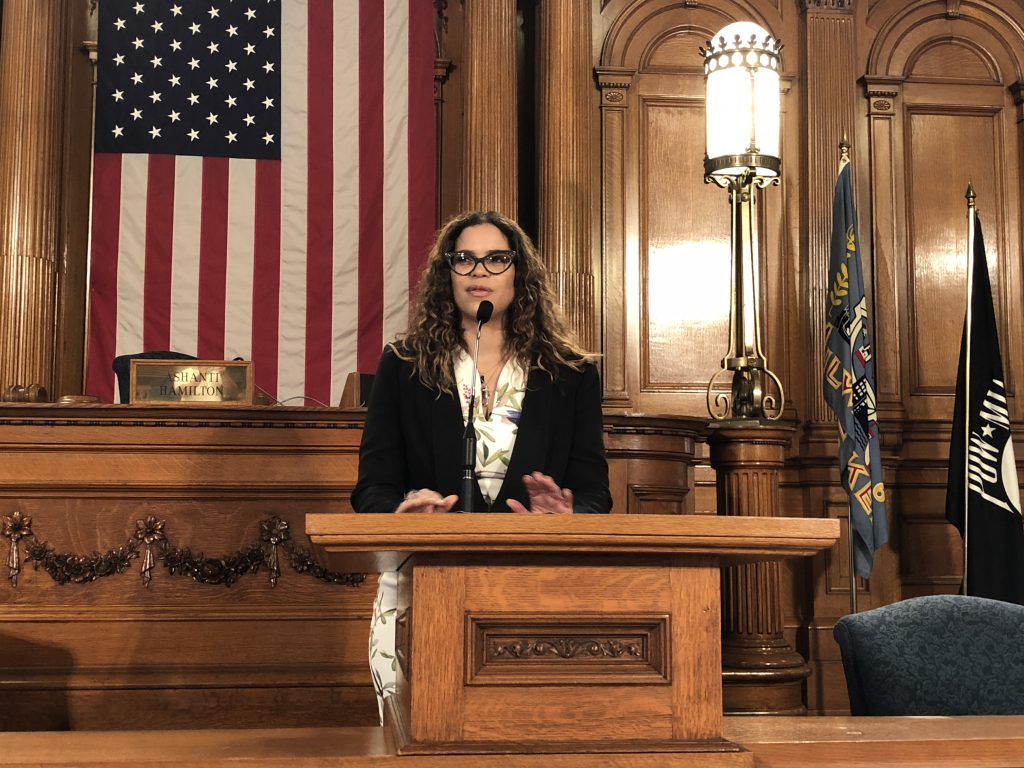Grants Target COVID-19 Racial Disparities
More than $1 million in grants will fund programs in Milwaukee County.
As the COVID-19 pandemic worsens in Milwaukee County, so too does the disparate impact it is having on the area’s African-American community. On Friday, the award of more than $1 million in grants to address this issue were announced.
Less than one in three county residents are African-American, yet, two-thirds of COVID-19 related deaths have been African-Americans as have the majority of cases. Dr. Ben Weston, director of medical services for Milwaukee County said, “While COVID-19 highlights these disparities in our community, we know that they are not new nor are they isolated.”
African-Americans are more likely to die of heart disease, cancer, stroke and diabetes than whites, Weston noted. As Jeanette Kowalik, health commissioner for the City of Milwaukee previously said, “Seeing COVID-19 cases in certain parts of the community, it kind of mirrors those other health factors, which shows that there are disparities.”
At a press briefing Friday Kowalik thanked the Advancing a Healthier Wisconsin (AHW) endowment for the grant funds they awarded her department and the Medical College of Wisconsin, which will be used directly on projects aimed at fighting racial disparities in the COVID-19 pandemic. “There needs to be a huge investment, in not only dollars, but also people, creativity, innovation, a willingness to loosen up any red tape that might be present in our organizations. Literally this is life and death so we have to make the most of our time.”
AHW’s response to the crisis is unprecedented, Ehrenfeld said. Normally, it takes the endowment about six months to roll out a series of grants. “We got this done in four weeks.”
The City of Milwaukee Health Department is receiving $500,000 to fund “culturally relevant risk-reduction communication.” This will include communication of prevention guidelines to communities of color in Milwaukee County and a pilot online training program for health workers and those doing public outreach in the communities so they can “respond to the mental health and wellbeing needs among these communities.”
Two other grants totaling more than half a million are also aimed at efforts in Milwaukee. One is a grant of $503,388 to the MCW’s Center for Advancing Population Science, which also addresses racial disparities: it will fund a program of education and testing for elderly African-Americans in nursing homes, care facilities, senior housing, assisted living and homeless shelters. Another is a $145,168 grant to the MCW’s Institute for Health and Equity funding the development of real-time epidemiological data for public health experts and officials in Milwaukee County.
Attacking the disparities present in this public health crisis is a task much bigger than the funding from these grants, however generous, can really address. They are not the result of the pandemic, rather, as Mayor Tom Barrett put it, the pandemic is “exposing a lot of the vulnerabilities that many of us have known have existed here for many years.”
Reggie Jackson, head griot at America’s Black Holocaust Museum, said, “These are things that are a pattern of disinvestment in the African-American community over many, many decades.”
Jackson brought up segregationist practices like redlining and race-restrictive housing covenants which kept African-American Milwaukeeans with limited options for moving to new neighborhoods or buying homes. Segregated city neighborhoods and surrounding suburbs have a direct line to disparate health outcomes. “You shouldn’t have to go way out to the suburbs to get high quality healthcare,” Kowalik said. “You should be able to access that in the city.”
Racist employment practices which resulted in much higher levels of black unemployment have also had a deleterious effect on health, Jackson said “Because of lack of high quality jobs, people have not had access to medical care.”
The segregated nature of the city and county is being “mirrored,” as Kowalik would say, by this pandemic. And for many African-Americn Milwaukeeans, the picture of what is happening is crystal clear. Wanda Montgomery, president of the Brown Deer Village Board, said, “It’s almost every day, I see a name that rises up. And I’m like, ‘oh my god, I know that person’.”
If you think stories like this are important, become a member of Urban Milwaukee and help support real, independent journalism. Plus you get some cool added benefits.
More about the Coronavirus Pandemic
- Governors Tony Evers, JB Pritzker, Tim Walz, and Gretchen Whitmer Issue a Joint Statement Concerning Reports that Donald Trump Gave Russian Dictator Putin American COVID-19 Supplies - Gov. Tony Evers - Oct 11th, 2024
- MHD Release: Milwaukee Health Department Launches COVID-19 Wastewater Testing Dashboard - City of Milwaukee Health Department - Jan 23rd, 2024
- Milwaukee County Announces New Policies Related to COVID-19 Pandemic - David Crowley - May 9th, 2023
- DHS Details End of Emergency COVID-19 Response - Wisconsin Department of Health Services - Apr 26th, 2023
- Milwaukee Health Department Announces Upcoming Changes to COVID-19 Services - City of Milwaukee Health Department - Mar 17th, 2023
- Fitzgerald Applauds Passage of COVID-19 Origin Act - U.S. Rep. Scott Fitzgerald - Mar 10th, 2023
- DHS Expands Free COVID-19 Testing Program - Wisconsin Department of Health Services - Feb 10th, 2023
- MKE County: COVID-19 Hospitalizations Rising - Graham Kilmer - Jan 16th, 2023
- Not Enough Getting Bivalent Booster Shots, State Health Officials Warn - Gaby Vinick - Dec 26th, 2022
- Nearly All Wisconsinites Age 6 Months and Older Now Eligible for Updated COVID-19 Vaccine - Wisconsin Department of Health Services - Dec 15th, 2022
Read more about Coronavirus Pandemic here






















